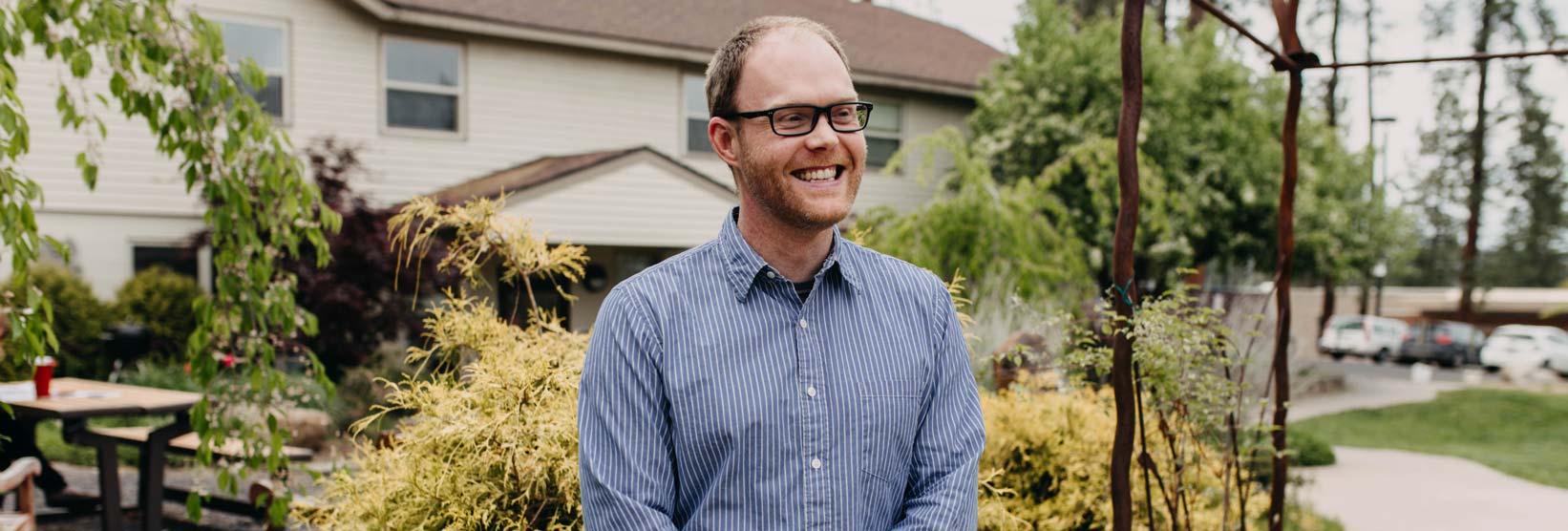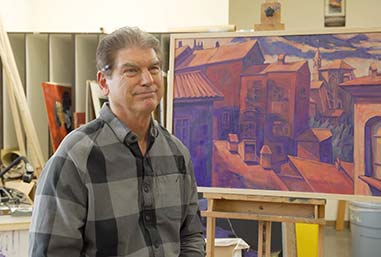Jake Andrews
English professor blends interests in fiction, theology
The world of literature has enamored Jake Andrews since the moment he started reading the Bible as a kid. His interests in theology and fiction writing led him to earn first a doctorate in divinity and then a master of fine arts degree. The big question, then, for Andrews was how to bring these two passions together. When he joined Whitworth's faculty in the fall of 2018 as an assistant professor of English, he found his opportunity.
"Before Whitworth, I'd been a theologian, and I was trying to figure out how in the world do I bring these two interests together," Andrews says. "I realized at a certain point I needed to make a shift to English if I was going to be an academic."
Andrews enrolled in the nationally acclaimed University of Iowa Writers' Workshop, and around the same time, one of his short stories won the Raymond Carver Prize. Even after Andrews began teaching English, however, he still struggled to find his fit.
"I started out teaching creative writing at state schools where questions of faith kind of had to be left to the side," he says.
Then he learned of the faculty position at Whitworth.
"I knew if I got this job, it would be my ideal job. I'd get to teach students, I'd get to write, and I could be open about the fact that I'm Christian. I'd get to have all those aspects of myself," Andrews says. "So I applied because I thought Whitworth was a place where I could be my weird self. And so far, so good."

